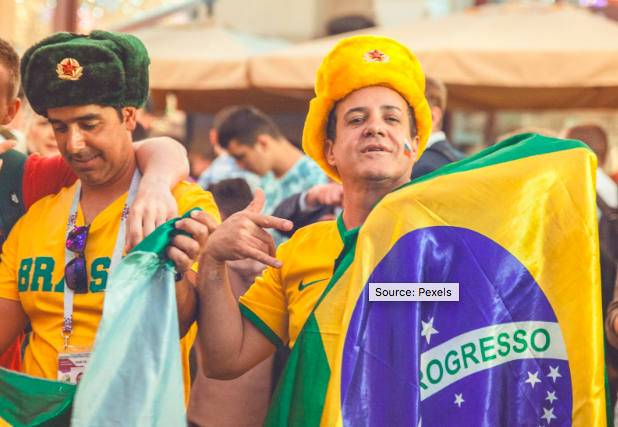Sports have a unique ability to create an electrifying atmosphere. The crowd’s roar and the suspenseful moments on the field bring people together like nothing else. But have you ever stopped to ponder what goes through the minds of sports fans?
What drives them to cheer, cry, and passionately support their teams? Lets delve into the fascinating psychology of sports fans and discovers their vital role in bolstering their beloved teams.
Try Not to Laugh at These HILARIOUS Sports Bloopers
<iframe width=”100%” height=”100%” frameborder=”0″ allowfullscreen=”true” src=”https://www.youtube.com/embed/3ohcAtguYWM?rel=0″></iframe>
Humans are naturally inclined to seek belonging, and sports offer an ideal avenue for fulfilling this need. Donning a team jersey or proudly waving a flag goes beyond mere support; it signifies joining a tribe. The profound sense of belonging that comes with being a part of something greater than oneself serves as a potent motivator for sports enthusiasts. In their minds, the team they rally behind becomes an extension of their identity.
Emotional rollercoasters are a common occurrence for sports fans. From the exhilaration of a last-minute goal to the heartbreak of a defeat, fans go through a whirlwind of emotions during a game. These highs and lows are what make sports so thrilling. They often forge a strong bond between fans and their teams, deepening their commitment even further.
Being a sports team fan can provide individuals with a sense of meaning and purpose. It gives them something to anticipate, a motivation to start their day, and an outlet from the routine of everyday life. The excitement that builds up leading to game day offers a thrill. It serves as a welcome diversion from the challenges one may face daily.
Sports have a unique ability to unite people. When fans come together to watch a game, it’s more than just spectating; they share an experience. There is a palpable rapport among fans at the stadium or in a sports bar. These shared experiences create lasting memories and strengthen the sense of belonging to a community.
Sports fans are infamous for their unique superstitions and rituals. These habits, such as wearing lucky socks or claiming a specific spot on the couch, have become deeply ingrained in fan culture. These practices provide a sense of control and comfort in an otherwise unpredictable world. When your team emerges victorious, and you’re wearing that cherished lucky hat, it transforms into a revered tradition.
Identity fusion is a psychological phenomenon in which an individual’s sense of self becomes intricately connected with a particular group, such as a sports team. This goes beyond merely supporting the team; it means their identity merges with the team’s. When the team succeeds, they feel a sense of personal triumph, and when the team loses, they take it to heart as a personal defeat. This deep fusion of identity can lead fans to display extraordinary dedication and unwavering loyalty.
With the rise of social media, sports fans have discovered a fresh outlet to connect and showcase their enthusiasm. Platforms like Twitter and Instagram allow fans to interact with their favorite teams, fellow enthusiasts, and even players. It’s become a means to convey thoughts, emotions, and undoubtedly humor through memes. Social media has magnified the fan experience, making it more engaging and interactive.
While watching sports, your brain releases dopamine, which is the feel-good chemical. So, when your team scores a goal, your brain rewards you with a surge of happiness. This release of dopamine strengthens the enjoyment of supporting your team and keeps you wanting to watch more.
For countless sports enthusiasts, their affection for a team is built on nostalgia. Recollections of watching games with loved ones or witnessing momentous victories together can establish a profound emotional bond. This sentimental attachment often results in a lifelong commitment to the team.
To conclude, the psychology of sports fans is an intriguing and multifaceted subject. From the deep-rooted tribal instinct that causes their sense of belonging to the emotional journey of game day, fans play a vital role in the world of sports. They offer unwavering support, foster a strong community bond, and assist athletes in reaching their utmost potential. So, when you encounter an impassioned cheering sports fan next time, remember that they are not mere spectators but integral participants in something far greater than themselves. They form the very pulse of the game and contribute to making sports extraordinary.


















